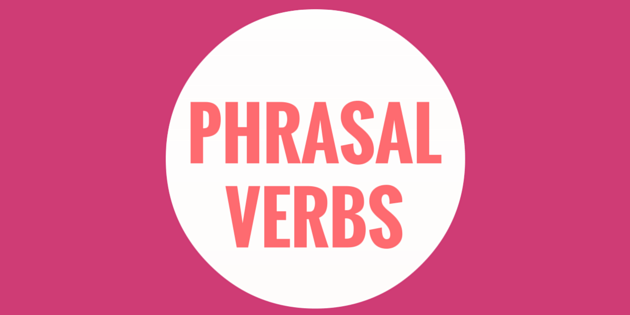Phrasal Verbs são verbos que têm seu sentido alterado quando são combinados com uma preposição ou um advérbio ou um advérbio e uma preposição.
Assim, a combinação resulta num significado diferente das palavras individualmente consideradas. Ex: O verbo “throw” (jogar) e a partícula “up” (que tem diversos significados, por ex., “para cima”), juntos (“throw up”) não significam jogar para cima exclusivamente, significa “vomitar” (ex: he trew up in front of everyone – ele vomitou na frente de todo mundo).
Os phrasal verbs são usados mais na fala informal.
Alguns phrasal verbs:
LOOK = Olhar
- look after = cuidar (i have to look after my son tonight)
- look away = olhar para o lado (the accident was so terrible that i had to look away)
- to look for = procurar
- look into = investigar mais a fundo
- look out = cuidado
- look through = dar uma olhada rápida
- look up = procurar algo num dicionário / procurar uma palavra
- look up to = admirar
- look forward to = esperar algo ansiosamente
GET = Este verbo tem muitos significados individualmente (pode significar, por ex., receive, comprar, mudar, transformar, etc.)
- get up = levantar-se ao acordar, rise from bed after sleeping
- get over = recover (illness, upset), recuperar-se de uma doença, recuperar-se no sentido emocional (superar) – ex: i finally got over the flu (eu finalmente me recuperei da gripe) – Obs: got é o passado de get / you have to get over your parent’s divorce (você precisa superar o divórcio dos seus pais)
- get down = algo que te deprime – ex: this rain is getting me down (essa chuva está me deprimindo, me deixando “para baixo”)
- get down to = turn one’s attention to sth
- get away = escape, fugir, escapar / get away from me (saia de perto de mim)
- get away with = escape (punishment)
- get along = be in good terms with somebody, se dar bem com alguém (i get along with my sister) / get on = também significa isso, mas é mais usado no inglês britânico (i get on with my sister)
- get by = manage, cope, dar um jeito, se virar – ex: i don´t have a lot of money, but i get by (eu não tenho muito dinheiro, mas eu me viro)
- get across = communicate (an idea), fazer-se compreendido, ter sucesso na comunicação – ex: i’m not sure i got my message across in the meeting (eu não tenho certeza se eu consegui me fazer compreendido na reunião)
- get out = isembark (car, taxi), sair – ex: get out! (saia daqui!) / we gotta get out of here (nós precisamos sair daqui)
- get in = enter (car, taxi)
- get off = disembark (bus, train etc.)
- get on = enter (bus, train etc.)
- get through = pass (an exam) / be connected on the phone
- get to = reach
